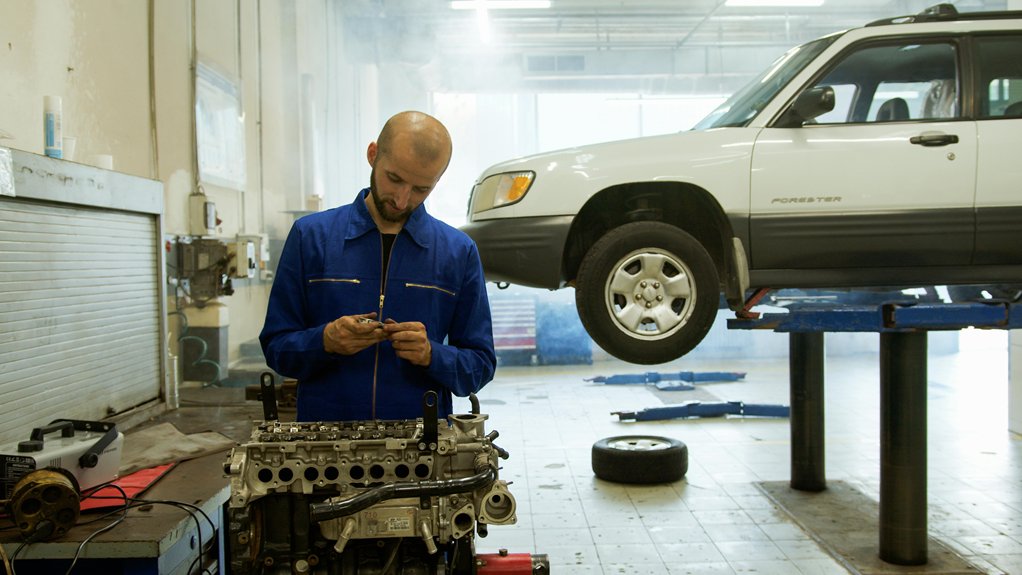When you’re dealing with transmission issues, asking the right questions can make all the difference. Knowing what signs indicate a problem, understanding repair options, and getting clear estimates can help you make informed decisions. But how do you know which questions to ask your mechanic? There are key topics that can help you assess your situation and plan your next steps effectively—questions that might just save you time and money.
What Are the Signs That My Transmission Might Need Inspection or Repair?
Your transmission is a critical part of your vehicle, and recognizing early signs that it needs inspection or repair can prevent costly damage. Look out for fluid leaks beneath your car, which often indicate transmission fluid escaping and can lead to serious issues.
Also, pay attention to gear slipping, where your transmission unexpectedly shifts gears or hesitates during acceleration. These signs signal that your transmission isn’t functioning properly and needs professional inspection.
Addressing fluid leaks and gear slipping early can save you from more extensive repairs later. If you notice these issues, it’s time to consult a transmission mechanic promptly.
Can You Explain the Specific Issues You’Ve Identified With My Transmission?
When a transmission mechanic examines your vehicle, they focus on identifying specific issues that could be causing problems. They might mention low or contaminated transmission fluid, which affects shifting and lubrication.
A thorough inspection often includes checking for trusted vendor parts to ensure durability and reliability in repairs.
If you have a manual transmission, they’ll check the clutch adjustment to ensure smooth engagement and prevent slipping. The mechanic should clearly explain what’s causing your symptoms, such as worn components or fluid leaks.
Ask them to specify if any parts need replacement or repair. Understanding exactly what’s wrong helps you make informed decisions about repairs and maintenance, guaranteeing your transmission functions properly and lasts longer.
What Are the Potential Repair Options, and Which Do You Recommend?
Understanding the repair options available helps you make informed decisions about fixing your transmission. You might need a simple fluid change, a transmission rebuild, or a full replacement.
The mechanic should explain which fluid types are best for your vehicle and how each repair affects repair costs. For minor issues, fluid flushes or repairs may be enough, saving you money.
More extensive repairs, like rebuilding or replacing the transmission, will be more costly but may be necessary for long-term reliability.
Ask for their recommendation based on your vehicle’s condition, budget, and driving needs. This way, you can choose an option that balances effectiveness and affordability.
How Long Will the Repair or Maintenance Process Take?
The duration of transmission repairs or maintenance can vary widely depending on the complexity of the issue and the mechanic’s workload.
If you’re getting a simple fluid change, it might take just a few hours. However, if there’s a problem with your gear shift or internal components, it could take a day or more.
Factors like diagnosing issues, ordering parts, or performing detailed inspections influence timing.
Be sure to ask your mechanic for an estimated timeline upfront, especially if you need your vehicle back quickly.
Clear communication helps you plan accordingly and guarantees you understand what to expect during the repair or maintenance process.
What Is the Estimated Cost for the Recommended Services?
How much will the recommended transmission services cost? Asking for a clear cost estimate helps you plan financially and avoid surprises. A reputable mechanic should provide transparent service pricing upfront, detailing the parts and labor involved.
Keep in mind that costs can vary depending on the extent of repairs or maintenance needed. Don’t hesitate to request a written estimate and ask if there are any additional charges.
Understanding the service pricing ensures you’re comfortable with the expenses and can compare quotes if needed. Being proactive about the cost estimate helps you make informed decisions and ensures your transmission receives the proper care without financial stress.
Are There Any Preventative Measures I Can Take to Extend My Transmission’s Lifespan?
Taking proactive steps can substantially extend your transmission’s lifespan and save you money on costly repairs later on. Regular preventative maintenance, such as scheduled fluid checks, is essential.
Make sure your transmission fluid is clean and at the correct level—dirty or low fluid can cause early wear or failure. Additionally, avoid aggressive driving and allow your vehicle to warm up before driving in cold weather.
Staying on top of these simple preventative measures helps keep your transmission running smoothly longer, preventing unnecessary breakdowns and costly repairs. Regular maintenance and fluid checks are your best defenses against premature transmission failure.
Conclusion
By asking these key questions, you’ll gain a clear understanding of your transmission’s condition and the best steps forward. Don’t hesitate to request detailed explanations, timelines, and costs upfront. Taking an active role helps guarantee you get the right repairs and preventative advice. Stay informed and confident in your decisions, so your transmission stays reliable for miles to come. Remember, a knowledgeable mechanic is your best ally in maintaining a healthy transmission. To schedule your free TransScan or to book an appointment, call us today at (919) 471-2506 or visit us online at Durham Transmission.

